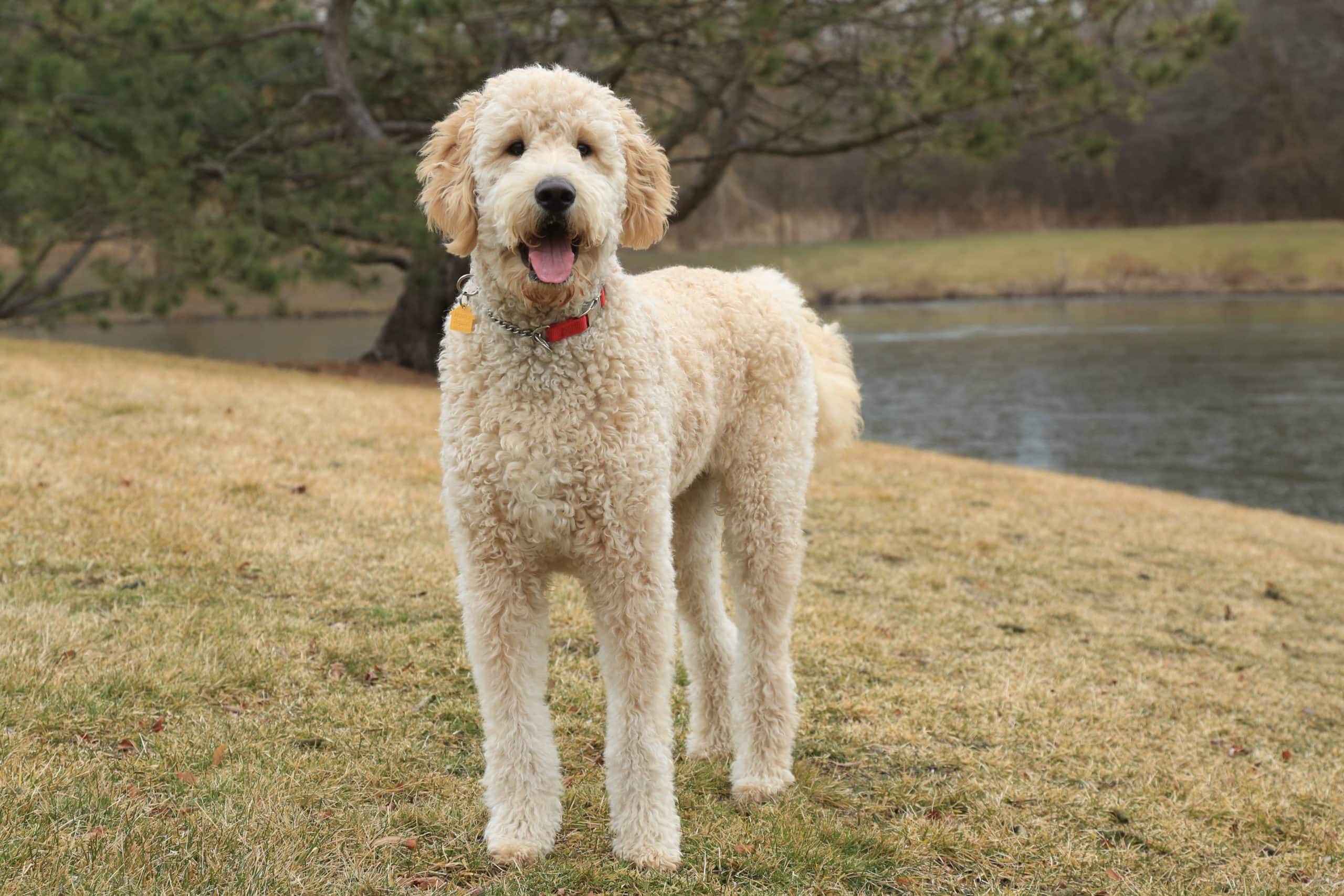The F1BB Mini Goldendoodle: The ultimate blend of a hypoallergenic coat and the lovable Golden Retriever personality, perfected for family life. Thinking about adding a four-legged friend to your family? The F1BB Mini Goldendoodle might be the perfect pup for you! This comprehensive guide will cover everything you need to know about these adorable dogs—from their genetic makeup and size to grooming, training, and finding a reputable breeder. Let’s dive in!
Decoding the F1BB Mini Goldendoodle
What exactly is an F1BB Mini Goldendoodle? The name might seem complex, but it reveals a lot about this special mix. “F1BB” refers to a specific breeding process:
- F1: A first-generation cross between a purebred Golden Retriever and a purebred Poodle.
- F1B: An F1 Goldendoodle bred back to a Poodle.
- F1BB: An F1B Goldendoodle bred again to a Poodle.
This results in a pup that’s genetically approximately 87.5% Miniature Poodle and 12.5% Golden Retriever. This backcrossing aims to maximize non-shedding and hypoallergenic qualities, making them a popular choice for allergy sufferers. While no dog is truly 100% hypoallergenic, the F1BB’s genetic makeup significantly reduces shedding and dander—the main allergy trigger for many.
Size and Appearance: Pocket-Sized Perfection?
While “mini” suggests a tiny pup, F1BB Mini Goldendoodles are more of a perfectly portable size. They typically grow to be 16 to 18 inches tall at the shoulder and weigh between 15 and 35 pounds. This makes them well-suited for both apartments and larger homes. Their appearance varies, with coats ranging from soft waves to tight curls, and colors from cream and apricot to chocolate and black.
Temperament and Personality: Golden Hearts and Playful Spirits
F1BB Mini Goldendoodles inherit the best of both worlds. The gentle nature of the Golden Retriever and the intelligence of the Poodle combine to create a friendly, loving, and highly trainable companion. They are eager to please, likely to greet you with enthusiastic tail wags, and generally even-tempered. However, they also possess a playful and energetic side, requiring proper exercise and training for a happy and well-behaved pup. Early socialization is key to raising a confident, well-adjusted adult.
Health and Lifespan: A Long and Happy Life Together
Like all breeds, F1BB Mini Goldendoodles can be prone to certain health issues, including hip dysplasia, eye problems, and allergies, though the backcrossing with Poodles may reduce these risks. Reputable breeders prioritize health testing of parent dogs to minimize potential problems. With proper care, including regular vet checkups, a balanced diet, and plenty of exercise, a healthy F1BB Mini Goldendoodle can live for 10 to 15 years, sometimes even longer.
Grooming: Maintaining that Luxurious Coat
That beautiful coat requires regular maintenance. Brushing a few times a week is essential to prevent mats and tangles. Professional grooming every few months is also recommended for trims, baths, and nail care. This is not just about aesthetics; it’s vital for their comfort and well-being.
Exercise and Training: Mind and Body Engagement
Intelligent and eager to learn, F1BB Mini Goldendoodles respond well to positive reinforcement training methods using rewards and praise. They thrive on mental stimulation, so puzzle toys and interactive games are essential. Daily walks, playtime, or even a romp at the beach will fulfill their exercise needs. Dog sports like agility and obedience can further enhance their physical and mental well-being while strengthening your bond.
Finding a Reputable Breeder: A Crucial Step
Finding a responsible breeder is paramount. Research thoroughly, ask questions, and visit the breeder’s facility if possible. A reputable breeder prioritizes the health and well-being of their dogs, maintains a clean environment, and readily provides health clearances for parent dogs. They will be transparent about their breeding practices and happy to answer all your questions.
Cost and Value: An Investment in Companionship
F1BB Mini Goldendoodles typically range in price from $2,500 to $4,200. This investment ensures a healthy, well-bred companion from a reputable breeder, minimizing potential health issues and associated costs down the road.
Is an F1BB Mini Goldendoodle Right for You?
Consider your lifestyle and living situation. Do you have time for training, exercise, and grooming? Are you prepared for the financial commitment? If you’re willing to dedicate the necessary time and effort, an F1BB Mini Goldendoodle can be a loving and loyal companion for years to come.
F1B vs. F1BB Goldendoodles: Which Doodle is Right for You?
| Feature | F1B Mini Goldendoodle | F1BB Mini Goldendoodle |
|---|---|---|
| Poodle % | ~75% | ~87.5% |
| Golden Retriever % | ~25% | ~12.5% |
| Coat | More variation, some shedding | Curlier, less shedding |
| Temperament | More Golden Retriever influence | More Poodle influence |
| Price | Generally lower | Generally higher |
| Grooming | Less intensive | More intensive |
How Big Will an F1BB Goldendoodle Get? Unlocking the Size Mystery
Size is influenced by the Poodle parent used in breeding. “Mini” F1BB Goldendoodles, bred from Miniature Poodles, are typically 16-18 inches tall and weigh 15-35 pounds. Variations exist, and reputable breeders can provide more accurate predictions based on parentage.
Conclusion: Welcoming Your F1BB Mini Goldendoodle
Choosing a new furry family member is a big decision. We hope this guide has provided valuable insights into the delightful F1BB Mini Goldendoodle. Explore further by researching reputable breeders and connecting with F1BB Mini Goldendoodle owners. Discover the fascinating world of other pets, like the fahaka puffer fish or the vibrant chili rasboras, for a broader understanding of the animal kingdom. Ready to welcome an F1BB Mini Goldendoodle into your home? Share your experiences and questions in the comments below!
- Unlock 6000+ words beginning with he: A comprehensive analysis - April 20, 2025
- Mastering -al Words: A Complete Guide - April 20, 2025
- Master Scrabble: High-Scoring BAR Words Now - April 20, 2025
















